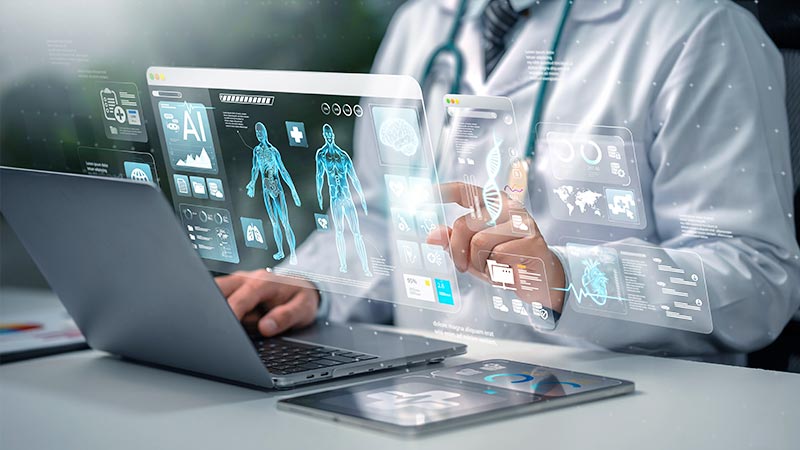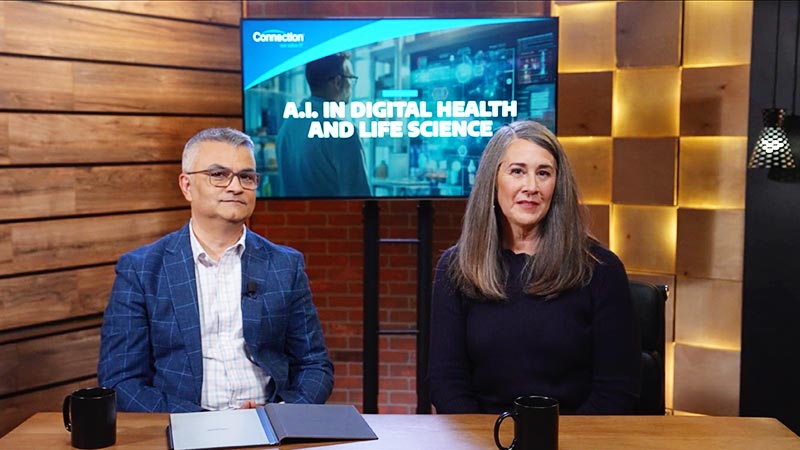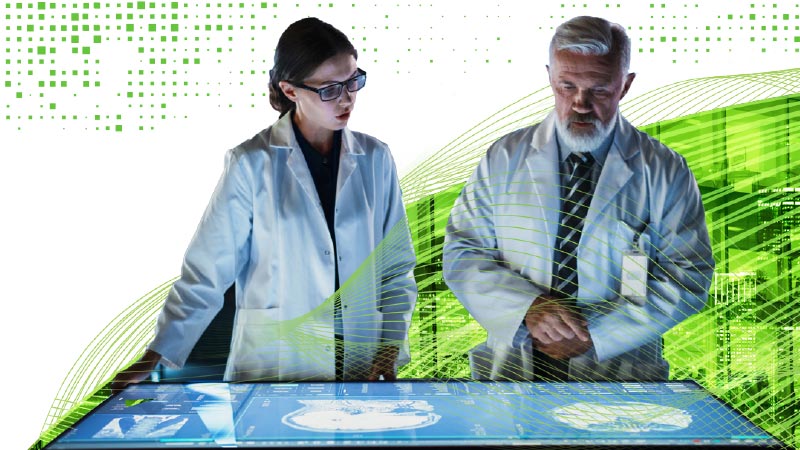This website stores cookies on your computer.
These cookies are used to collect information about how you interact with our website and allow us to remember you. We use this information in order to improve and customize your browsing experience and for analytics and metrics about our visitors both on this website and other media. To find out more about the cookies we use, see our Privacy Policy.
IMPORTANT: Our website will be down for planned maintenance on SUNDAY, 10/26/25 from 5:30AM to 1:00PM EST
How Can AI Be Used
in the Healthcare Industry?
Get the Latest on AI and Healthcare Solutions from the Experts
AI also powers clinical decision support, helping providers choose optimal treatment plans based on patient data, research, and best practices. In operations, AI-driven scheduling, claims processing, and supply chain optimization help hospitals and clinics run more efficiently.
On the patient side, AI-enabled chatbots and virtual assistants improve engagement by answering questions, providing medication reminders, and monitoring symptoms remotely. The benefits are faster diagnoses, more personalized care, and lower administrative burdens on healthcare staff.

Get AI and Healthcare Help from the Experts
Responsible AI in Digital Health and Life Sciences
Explore how AI is solving real-world problems in healthcare, from boosting clinical productivity to transforming operations at scale.
Whether you’re just beginning your AI journey or looking to scale existing initiatives, this webinar offers practical guidance from leaders on the front lines of healthcare innovation.
Whether you’re just beginning your AI journey or looking to scale existing initiatives, this webinar offers practical guidance from leaders on the front lines of healthcare innovation.
5 Ways AI Is Elevating Healthcare
AI is transforming healthcare: improving documentation, enhancing triage and diagnosis, detecting drug interactions, enabling remote medication monitoring, and strengthening supply chain resilience. With 79% of healthcare organizations using AI, the infographic emphasizes efficiency, better patient outcomes, and significant cost savings—up to $170 billion annually.
Batch Add Products by Item #
15

